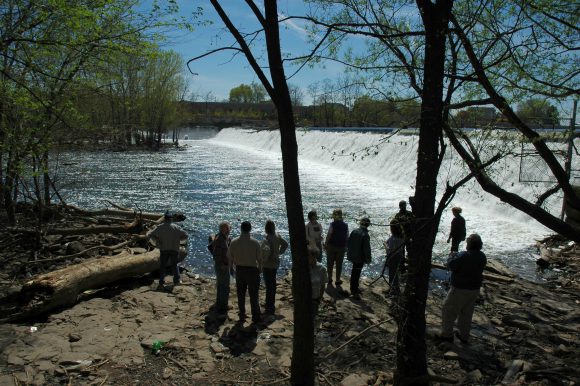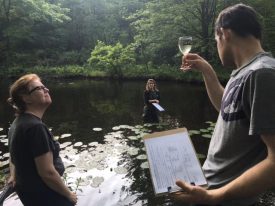
Students of the Environmental Stewards Program.
Imagine being able to discuss climate change with the State Climatologist or learn about New Jersey’s geology from the people who map it. Would you like to learn about habitat restoration in your own community or help to improve water quality of a local river or stream? These are some of the opportunities available to enrollees in the 2017 Rutgers Environmental Stewards Training Program.
The Rutgers Environmental Stewards (RES) Program educates the public about the science behind pressing environmental issues and helps participants create positive change in their communities. The program introduces non-scientists to the science underlying key environmental issues in the Garden State. Leading authorities from academia are joined by colleagues from government and the non-profit sector to share understanding and insights with the Stewards and help them make a difference in their own communities.
Rutgers Cooperative Extension will offer the Environmental Stewards Program at five different locations across the state starting in January and running through May- Passaic, Somerset, Middlesex, Burlington, and Atlantic Counties.

Students studying water quality.
Students are introduced to a network of expert individuals and organizations who can be of service to them in the future as they wrestle with solving local environmental problems. They start out by attending class once a week on topics including climate change, soil health, energy conservation, water resource protection, invasive species management, open space management, habitat conservation, and environmental policy. Optional field trips to environmentally significant sites around the state are included as part of the program.
In order to become a certified Environmental Steward, graduates of the class portion of the program must also complete a 60-hour volunteer internship of their choosing. Internships are unique and intended to align with the passion of the individual, the needs of the program, and the community.
Steward internship projects have included helping farmers adapt to climate change, composting restaurant food waste, mapping and eradicating invasive species in local parks, restoring native dune vegetation in shore communities, and installing rain gardens, among others.
The classes, field trips, and internship do not replace a science degree, but help citizens educate themselves when presented with a real world environmental problem.
Registration and program locations (click on “contacts”).

